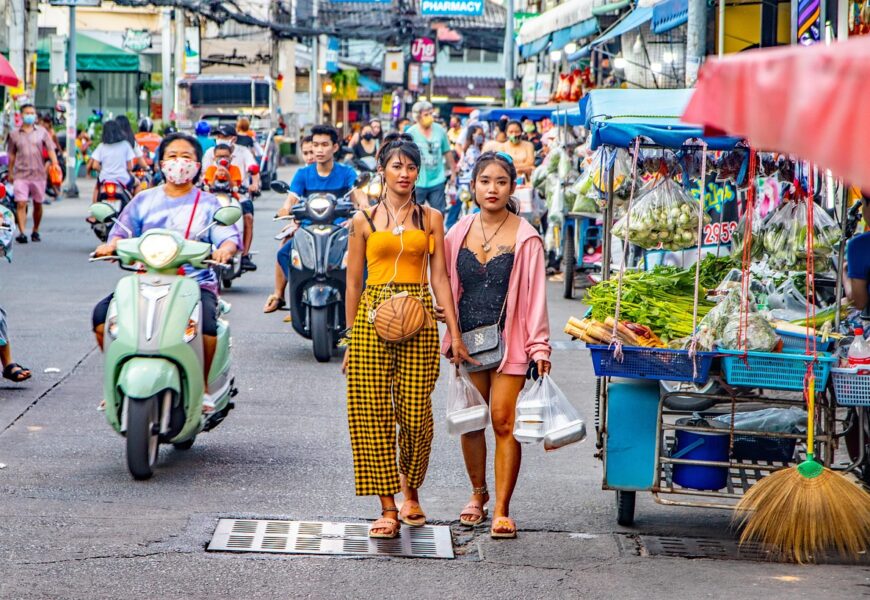Thailand represents a complex and dynamic society where women play increasingly significant roles across economic, social, and cultural domains. The narrative of Thai women is multifaceted, encompassing traditional expectations, modern aspirations, and evolving societal dynamics. From rural communities to urban centers, Thai women navigate intricate landscapes of cultural heritage and contemporary challenges, demonstrating remarkable resilience, intelligence, and adaptability. Understanding their experiences requires a nuanced exploration of historical contexts, contemporary opportunities, and the ongoing transformation of gender roles in Thai society.
Historical and Cultural Background
Thai women have historically occupied unique positions within Southeast Asian cultural frameworks, often enjoying more relative social mobility compared to neighboring countries. Traditional Thai society recognized women’s economic contributions, with many women participating actively in agricultural and commercial activities. Buddhist cultural influences emphasized respect and recognition of feminine roles, creating social structures that were comparatively more egalitarian. Women in traditional Thai settings often managed household finances, maintained family networks, and played crucial intermediary roles in community interactions. These historical patterns established foundational frameworks for women’s participation in broader societal systems, setting the stage for modern empowerment movements.
Throughout centuries of cultural development, Thai women maintained strong familial connections while gradually expanding their social and economic opportunities. Extended family structures and matrilineal inheritance patterns provided women with significant social capital, enabling them to negotiate complex social landscapes with strategic intelligence and cultural awareness.
Education and Professional Advancement
Contemporary Thai women have made remarkable strides in educational attainment, consistently outperforming male counterparts in academic achievements. Recent statistics demonstrate that approximately 60% of university graduates in Thailand are women, signaling profound shifts in educational participation and professional aspirations. These educational achievements have translated into increased representation across diverse professional sectors, including business, technology, healthcare, and government administration. Women are increasingly occupying leadership positions in corporate environments, challenging traditional gender hierarchies and demonstrating exceptional professional competence.
Universities and professional training programs have become critical platforms for women’s empowerment, providing structured pathways for skill development and career advancement. Government policies supporting gender equality in educational access have further accelerated these transformative processes, creating systematic opportunities for women’s socioeconomic mobility.
Economic Participation and Entrepreneurship
Thai women have emerged as significant economic actors, contributing substantially to national economic development through entrepreneurial initiatives and professional contributions. Small and medium enterprises led by women represent growing segments of Thailand’s economic landscape, with women demonstrating remarkable innovation and strategic business acumen. Many women leverage digital technologies and global connectivity to create transnational business networks, transcending traditional economic limitations. Cultural traits of adaptability, relational intelligence, and strategic thinking provide competitive advantages in complex business environments.
Emerging sectors like technology, creative industries, and sustainable development have witnessed increasing women’s participation, challenging conventional gender-based professional boundaries. Women-led startups and social enterprises are reimagining economic possibilities, integrating technological innovation with culturally sensitive approaches to business development.
Social Challenges and Empowerment Movements
Despite significant progress, Thai women continue confronting complex social challenges related to gender discrimination, workplace inequalities, and persistent cultural stereotypes. Feminist movements and grassroots organizations have played crucial roles in challenging systemic inequalities, advocating for legal reforms, and promoting comprehensive gender equality. These movements address multifaceted issues including workplace harassment, domestic violence, reproductive rights, and economic opportunities, creating sophisticated frameworks for social transformation.
Legal reforms and policy interventions have gradually expanded women’s rights and protections, establishing more robust mechanisms for addressing gender-based discrimination. Civil society organizations collaborate with government agencies to develop holistic approaches to women’s empowerment, integrating educational, economic, and social strategies.
Cultural Identity and Global Perspectives
Thai women navigate intricate intersections between traditional cultural identities and global contemporary experiences. While maintaining deep connections to cultural heritage, many women actively engage with transnational perspectives, creating hybrid identities that blend local traditions with global aspirations. Language skills, technological proficiency, and cross-cultural adaptability characterize increasingly cosmopolitan generations of Thai women who reimagine cultural possibilities.
International marriages, global professional opportunities, and digital connectivity have expanded women’s horizons, creating complex narratives of cultural belonging that transcend traditional geographic and social boundaries. These dynamic identities represent sophisticated responses to globalization, demonstrating remarkable cultural intelligence and strategic adaptability.
Thailand’s women represent powerful agents of social transformation, embodying remarkable resilience, intelligence, and potential. Their journeys reflect broader narratives of societal evolution, challenging traditional limitations while honoring rich cultural traditions. As Thailand continues developing in the 21st century, women will undoubtedly play pivotal roles in shaping national trajectories, driving innovation, and creating more inclusive, equitable social systems. Understanding and supporting their ongoing empowerment represents a critical pathway toward comprehensive national development.









